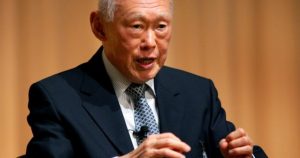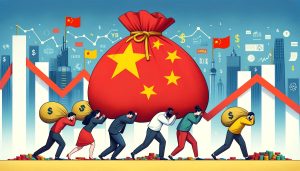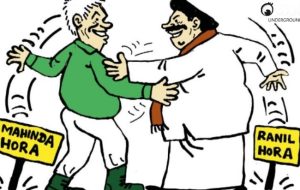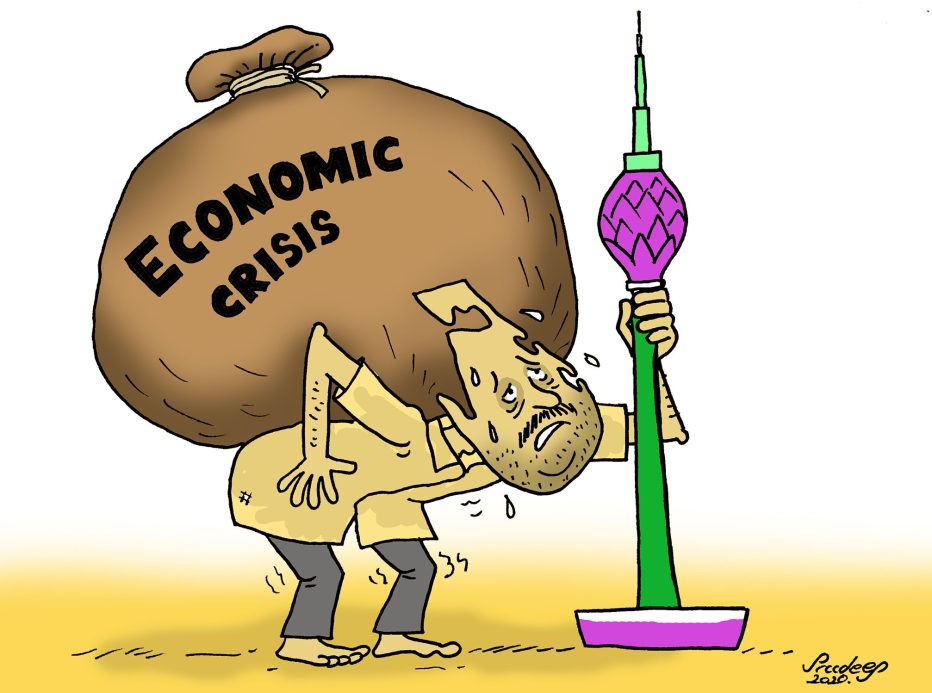Independence Day is celebrated to honour national pride of a country, and to mark freedom from a colonial or other power. It signifies mainly political and economic freedom while enjoying broadly freedom in broad spectrum of life including freedom of speech. Sri Lankan government’s decision to celebrate Independence Day today o February 4th while the country faces economic hardship and people struggling to meet with basic necessities is beyond the real meaning of independence. Spending resources and huge amount of money at a time people struggling to afford food and basic necessities can be seen as insensitive and out of touch.
Former President Gotabaya Rajapaksa fled the country’s gates, retreating to his government bungalow in the leafy suburbs of Malalasekara Mawatha. As Ranil Wickremesingha entered the President’s House, a brutal raid dispersed protesters camped at Galle Face Green. Now, Wickremesingha stands to receive a gun salute marking independence while the country faces its worst crisis since independence. In pursuit of political stability, Wickremesingha might even embrace those responsible for the country’s downfall, as long as it allows him to remain in power for a few more years.

In the 1960s, wise public policies from successive governments made Sri Lanka a model for South Asian development. In 1964, Singapore’s founder, Lee Kuan Yew, even declared his aspiration for Singapore to emulate Sri Lanka. Today, however, Sri Lanka is seen as a stark example of governance failure.
He said that he “watched the promising country go to waste and it failed because they had wrong or weak leaders”.
Sovereign Debt Burden:
Sri Lanka’s sovereign debt is held by numerous countries, with China, India, and Japan being the most prominent. China holds about 10% of the debt, often cited as an example of “debt-trap diplomacy.” However, if you include debt held by Chinese banks like EXIM Bank of China and the China Development Bank, the percentage jumps closer to 26%.

Official government statistics reveal that commercial institutions hold the largest portion of Sri Lanka’s debt by far. Over the past 20 years, Sri Lanka has transitioned from low-interest concessionary loans from institutions like the World Bank and the Asian Development Bank to mostly commercial loans from private banks at significantly higher interest rates. In 2019, 56% of Sri Lanka’s debt was held by commercial lenders, compared to only 2.5% in 2004.
Sri Lanka has served as an arena for competition between India and China (and to a lesser extent, Japan). India has offered the most significant assistance during the crisis, providing over $3.8 billion in currency swaps, loans, food, and fuel aid this year alone. This situation positions Sri Lanka at the centre of a geopolitical tug-of-war between India and China.
Despite the recent change in leadership, Sri Lanka risks repeating past mistakes by moving forward without addressing the fundamental governance issues that fueled the 2022 unrest, ultimately leading to Gotabaya Rajapaksa’s forced exit.
Here’s a nutshell of the country’s situation:
Public Debt:
- 2023: ~110% of GDP (World Bank)
- 2020: ~42% of GDP (Wikipedia)
Unemployment:
- 2022: 4.7% (CBSL)
- Youth unemployment: ~15% (World Bank)
Corruption and Governance:
-
Corruption Perception Index 2022: 114th out of 180 countries (Transparency International)
-
Global Competitiveness Index 2023: 116th out of 140 countries (World Economic Forum)
-
Environmental Degradation:
- Deforestation rate:
- 2020-2021: 1.7% (World Bank)
- Sustainable threshold: 0.5% (FAO)
- Plastic waste generation:
- 2022: 800,000 tonnes (Ocean Conservancy)
- Per capita: 36 kg (Ocean Conservancy)
- Climate change risks:
- Sea level rise: Projected 0.3-1.0 meters by 2100 (IPCC)
- Frequency of extreme weather events: Increasing (World Bank)
- Deforestation rate:
Social Inequalities:
- Gini coefficient (income inequality): 0.41 (World Bank)
- Higher coefficient indicates greater inequality.
- Percentage of population living below national poverty line:
- Pre-pandemic: 9.2% (World Bank)
- Current estimate: 14.3% (LSE Blogs)
- Gender Inequality Index 2022: 0.654 (UNDP)
- Lower score indicates higher inequality.
Political Instability:
- Number of protests in 2022: Over 800 (Human Rights Watch)
- Frequency of government changes: 5 governments in 5 years (2018-2023)
- Public trust in government: Low (various surveys)
Sources:
- World Bank, CBSL (Central Bank of Sri Lanka), Transparency International, World Economic Forum, FAO (Food and Agriculture Organization), Ocean Conservancy, IPCC (Intergovernmental Panel on Climate Change), UNDP (United Nations Development Programme),
Sources: World Bank, CBSL (Central Bank of Sri Lanka), Transparency International, World Economic Forum, FAO (Food and Agriculture Organization), Ocean Conservancy, IPCC (Intergovernmental Panel on Climate Change), UNDP (United Nations Development Programme), Human Rights Watch, LSE Blogs (London School of Economics).

Break the Chains
Emerald tears stain sun-kissed sand,
Where ancient dreams in silence stand.
Greed’s cold hand, power’s cruel clasp,
Choke the island in its grasp.
Whispers echo, voices hushed,
Of lives shattered, fortunes crushed.
But defiance flickers, hope’s faint spark,
In eyes that yearn for freedom’s mark.
Will justice rise, like morning’s light,
And chase away the endless night?
The people’s strength, a whispered plea,
To break the chains and finally be free.







